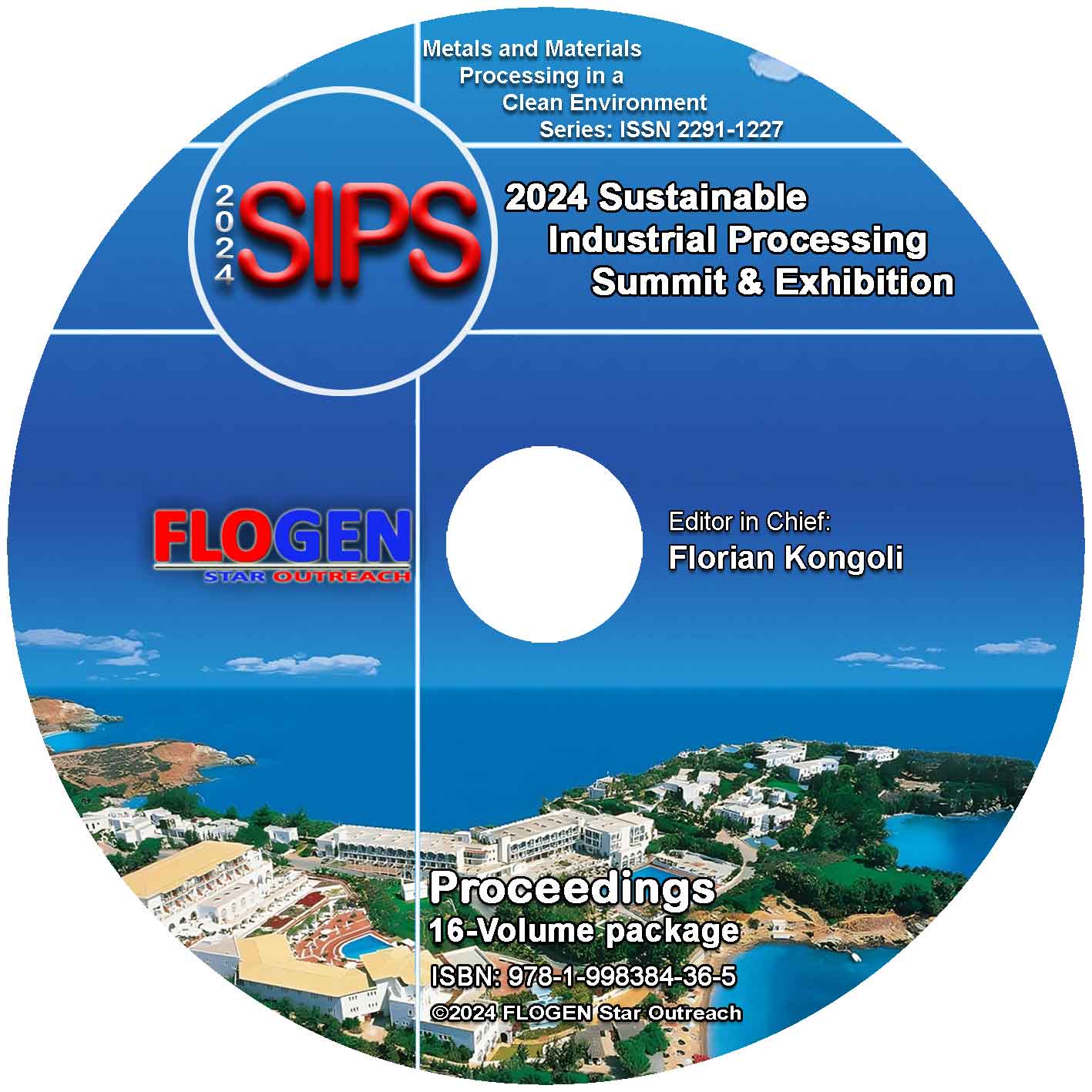2024 - Sustainable Industrial Processing Summit
SIPS 2024 Volume 1. Abe Intl. Symp. / Oxidative Stress and Technological Innovations in Medicine
| Editors: | F. Kongoli, H. Inufusa, T. Yoshikawa, C.A. Amatore, H-Y. Chen, W-H. Huang |
| Publisher: | Flogen Star OUTREACH |
| Publication date: | 23 December 2024 |
| Pages: | 218 pages |
| ISBN: | 978-1-998384-04-4 (CD) |
| ISSN: | 2291-1227 (Metals and Materials Processing in a Clean Environment Series) |

CD shopping page
THE MOLECULAR LINKS BETWEEN AGEING AND NEURODEGENERATION
Nektarios Tavernarakis1;1CHAIR, EIT GOVERNING BOARD (EUROPEAN INSTITUTE OF INNOVATION & TECHNOLOGY), Heraklion, Greece;
Type of Paper: Regular
Id Paper: 454
Topic: 46
Abstract:
Ageing is driven by the inexorable and stochastic accumulation of damage in biomolecules vital for proper cellular function. Although this process is fundamentally haphazard and uncontrollable, senescent decline and ageing is broadly influenced by genetic and extrinsic factors. Numerous gene mutations and treatments have been shown to extend the lifespan of diverse organisms ranging from the unicellular yeast Saccharomyces cerevisiae to primates. It is becoming increasingly apparent that most such interventions ultimately interface with cellular stress response mechanisms, suggesting that longevity is intimately related to the ability of the organism to effectively cope with both intrinsic and extrinsic stress. Key determinants of this capacity are the molecular mechanisms that link ageing to main stress response pathways. How each pathway contributes to modulate the ageing process is not fully elucidated. Mitochondrial impairment is a major hallmark of several age-related neurodegenerative pathologies, including Alzheimer’s and Parkinson’s diseases. Accumulation of damaged mitochondria has been observed in post-mortem brains of Alzheimer’s disease patients. Mitophagy is a selective type of autophagy mediating elimination of damaged mitochondria, and the major degradation pathway, by which cells regulate mitochondrial number in response to their metabolic state. Little is known about the role of mitophagy in the pathogenesis of Alzheimer’s disease. We find that neuronal mitophagy is impaired in animal models of Alzheimer’s disease. Indeed, mitophagy stimulation restores learning and memory capacity, in these animals. Moreover, age-dependent decline of mitophagy both inhibits removal of dysfunctional or superfluous mitochondria and impairs mitochondrial biogenesis resulting in progressive mitochondrial accretion and, consequently, deterioration of cell function. Our observations indicate that defective removal of damaged mitochondria is a pivotal event in neurodegeneration. These findings highlight mitophagy as a potential target for the development of innovative, effective therapeutic interventions towards battling human neurodegenerative disorders.